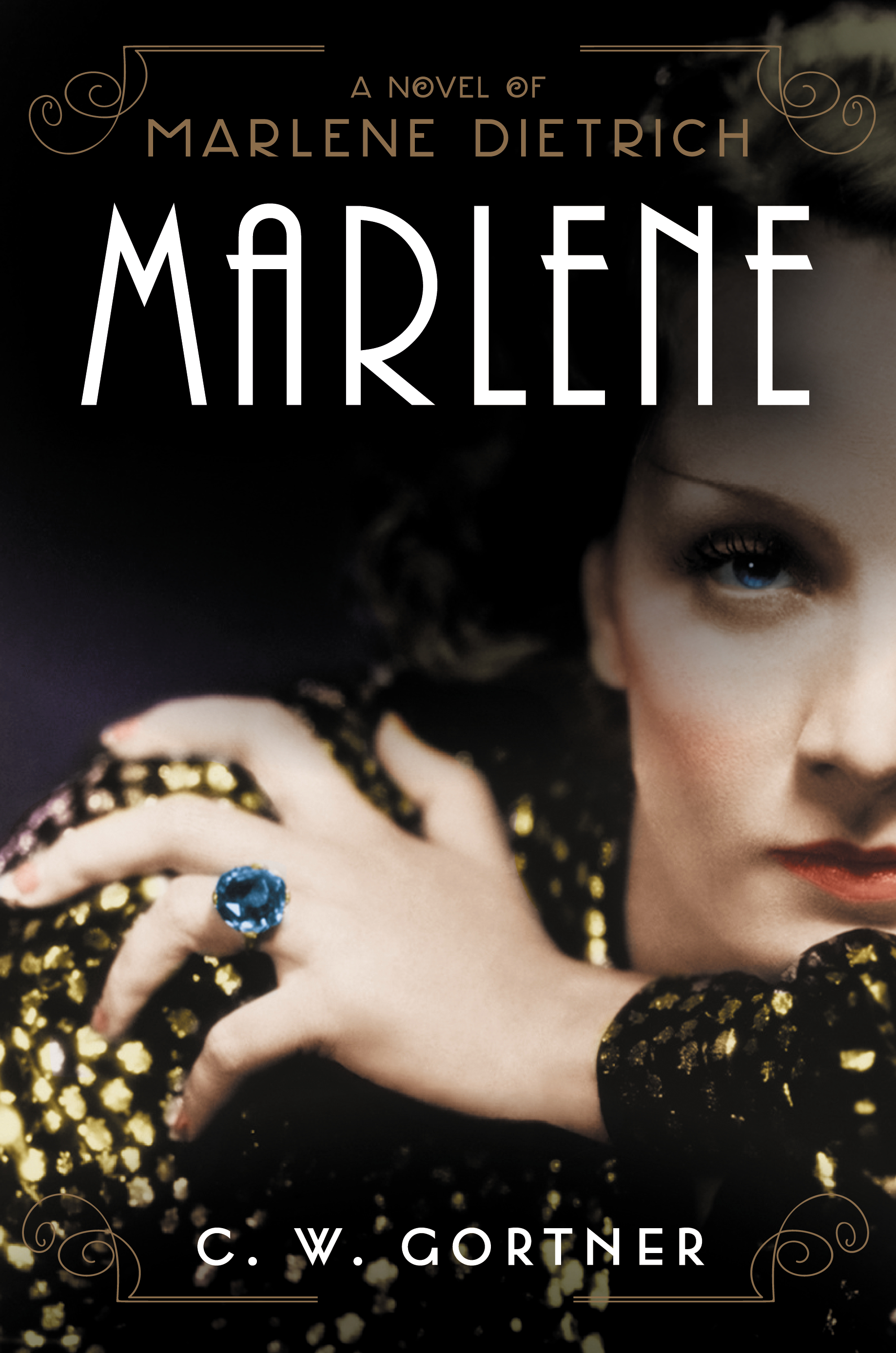The actress Marlene Dietrich played cabaret singers, spies, vamps, a prostitute and Catherine the Great. With a gift for reinvention that makes Madonna look like a poseur, Dietrich fascinated moviegoers and the public worldwide for decades, a symbol of mystery, allure and glamour.
In the novel Marlene (William Morrow, 403 pp., *** out of four stars), author C. W. Gortner (Mademoiselle Chanel) gives Dietrich the fictionalized biography treatment that seems to have become a literary subgenre of its own. Drawing from Dietrich’s autobiography and biographies by her daughter and others, Gortner fills in the blank spaces with imagined dialogue, both internal and spoken.
Dietrich is a fascinating creature. She's a stunning and self-absorbed German girl whose hard-working mother cleans houses to pay for her daughter's violin lessons after Marlene’s father dies. The freedom of life at a music conservatory leads to her sexual awakening and a job as a cabaret singer, where she attracts the attention of German director Josef Von Sternberg, her mentor and tormentor. He gives her a breakthrough role in The Blue Angel, the film that would bring Dietrich to Hollywood and worldwide fame.
Yet her most compelling role may have been her defiance of Adolf Hitler as the Nazis rose to power and decimated her homeland. Dietrich publicly rebuked the fuhrer, despite the risk to her family members still in Germany. During the war, she ignored personal danger to entertain hundreds of thousands of American troops abroad.
Dietrich appears to have been irresistible, and slinks from one lover to the next, despite her enduring marriage to Rudi Sieber, an assistant casting director. Her romantic conquests read like a “who’s who” of 20th century film and letters: actress Anna May Wong, actors Gary Cooper, John Wayne and Douglas Fairbanks Jr., German novelist Erich Maria Remarque, French actor Jean Gabin and Gen. George Patton. She even shared a lover with Greta Garbo, the elusive Swedish star who fascinates Marlene and haunts her career.
![G2MCAPS05 7D A FEA [image : 84873382]](http://www.gannett-cdn.com/media/2016/05/24/USATODAY/USATODAY/635997087714736364-G2MCAPS05-7D.jpg)
The Dietrich in these pages is a contradictory, earthy and fairly chilly figure. She takes lovers with little care to the repercussions. Yet when pal Ernest Hemingway takes a wartime lover while his wife is away, a judgmental Marlene offers the lovers her larger bed — which, unknown to them, is crawling with lice.
Gortner’s well-paced story of Dietrich’s life, from campy Berlin dance halls to Hollywood’s secretive lesbian community and her wartime sacrifices, is fascinating and compelling. But turning a real person’s well-documented life into a “novel” raises some queasy questions. Is it fair to put words and thoughts in the mouth and head of a woman who was so protective of her image and story? Discuss among yourselves.


![635997084133109405-Marlene-HC.JPG [image : 84872936]](http://www.gannett-cdn.com/media/2016/05/24/USATODAY/USATODAY/635997084133109405-Marlene-HC.JPG)
![635997086388259861-CW-Gortner-ap1.JPG [image : 84873194]](http://www.gannett-cdn.com/-mm-/debe7f2cb70aa83c642b087b843b772f8c24513e/c=0-115-996-966/local/-/media/2016/05/24/USATODAY/USATODAY/635997086388259861-CW-Gortner-ap1.JPG)
